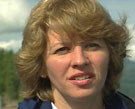|
INTERVIEW
TRANSCRIPT - Vivian Krause Interview #2
No. What we think is important is to be in touch. Some of the vociferous critics of salmon farming have never been to a salmon farm. We think it's important for them to come and see how things are really being done. How we are addressing issues. How we're solving dilemmas. If people have constructive criticism, we're listening. There are generalizations being made about salmon farming. If there are actionable concrete suggestions we'll act on those. What's important is to get beyond the rhetoric and start with the reality of what's happening on the farms. Our approach begins with acknowledging that there are risks. Like there are for every way of farming, including fishing, and every human endeavour. We begin by acknowledging those risks, and we've developed what we call the environment program which is a way of developing farm practices for minimizing those risks. We believe that if we are doing things carefully and properly we can operate our farms in a responsible way. We grow a great food and we provide a livelihood in small communities where there are not many opportunities. As an industry, in the last decade, we focused on technology, techniques of farming, capitol investment, re-anchoring our farms, developing ways for growing fish, and taking care of the environment. Where we failed is in communicating our progress to the public. We haven't kept the public up to date of the many advances and improvements that we've made. So now there's a disconnection between the way people think farms operate and the way they actually do. As an industry we have a lot of work ahead to keep the public trust. Salmon farms are mostly in remote locations so few people have actually come to visit a farm. Even the worst skeptics, when they come and see a farm and see how we actually do things, go away confident that salmon farming can be done, and is being done in a responsible way.
Disease is a reality of all types of farming including salmon farming. Our experience has been, with regular monitoring and managing of our farms, we can raise our fish in a sustainable way. The risk of disease will never be eliminated. But with careful monitoring and treatments as necessary, it's manageable. That's every farmer's challenge.
Lice are a natural part of the marine environment. It wouldn't be normal if there were no lice. When we monitor carefully and treat as necessary as prescribed by our veterinarian, lice don't overpopulate. It's the management of the farm that's vital. Monitoring and treatment are necessary. We find that as long as we stay on top of things, we can manage our farms in a responsible way. It meets the expectations of the communities that we are working with. Our approach begins with listening to the local communities that we're working with. Here in Jackson Pass we followed the recommendations of the Kitasoo when it came to locating the farms. That's very important because they know, based on generations, what is here in the pantry of the community. We work together, combining their traditional knowledge with some of the things we learned based on new techniques and technologies. We've been able to locate our farms with the satisfaction of the local community and also meet our business requirements.
Locating a farm to meet the expectations of the local communities is very important. You have to get it right from the get go.
Here in British Columbia we have a huge coast. There are plenty of options for where to locate farms so that the expectations of communities are met and so are the needs of the companies. I think if we work together we can work it out.
It behooves us to operate our farms in such a way that we do not harm wild salmon populations. We take that very seriously.
The companies that are involved in research would probably love for a company like ours to be interested, but we're not. We are not involved, we have not been involved, and we have no plans to be involved in raising genetically modified fish.
Salmon is a great food the way it is. We have other priorities that we are working on. With new vaccines we have dramatically reduced the use of antibiotics. We're using less than a tenth of what we were using 10 years ago. In Scotland last year, we didn't use any antibiotics at any of our 44 farms. We don't yet have a vaccine for sockeye disease. That's a priority for us.
There is a risk of salmon escaping. But the reality is that most salmon farms in B.C. haven't had any escapes in the last three years. That's because of re-anchoring, stronger nets, routine maintenance of the nets, and well-trained people working at the farms that can dramatically reduce the risks. Every choice in farming carries advantages and disadvantages. Each species has its own advantages and disadvantages. With Atlantics, one of the factors is that they cannot reproduce with Pacific species. That's an advantage. There are other advantages as well. The Atlantics grow better in the colder waters of the central coast. In farming Chinook, we face that fact that we are farming a species with which we share the environment. So it's all the more important to us to ensure that we keep our fish in the pens and that they don't escape.
I can't comment on a report that I haven't seen.
All I can say is that it's important that the results of any study be correctly interpreted. What has happened in the past is that results have not been correctly interpreted and the numbers have been taken out of context. I hope that won't happen again. |
 Vivian
Krause is the Corporate Development Manager for Nutreco in
British Columbia.
Vivian
Krause is the Corporate Development Manager for Nutreco in
British Columbia.